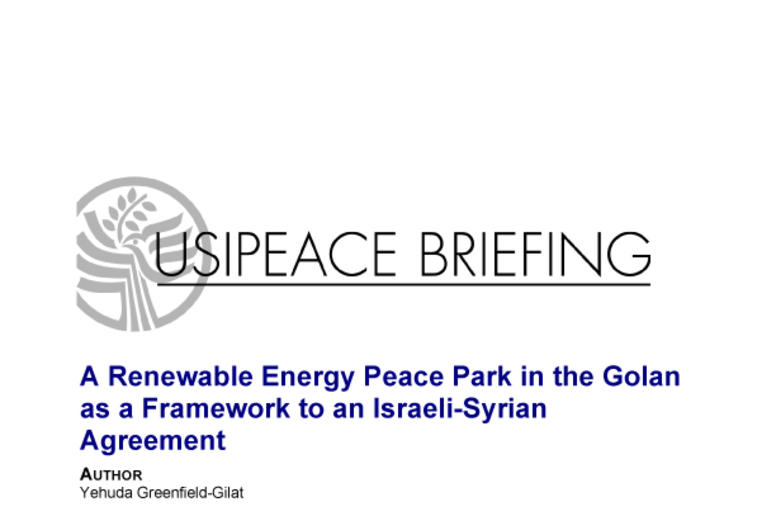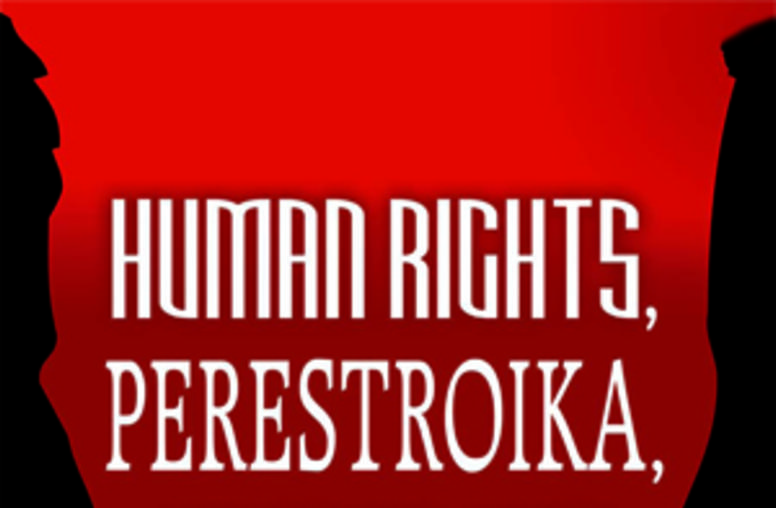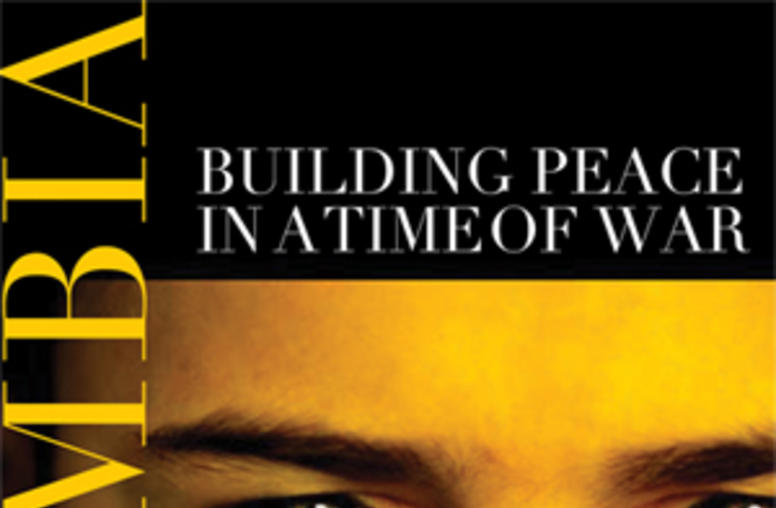Publications
Articles, publications, books, tools and multimedia features from the U.S. Institute of Peace provide the latest news, analysis, research findings, practitioner guides and reports, all related to the conflict zones and issues that are at the center of the Institute’s work to prevent and reduce violent conflict.
Smart Tools for Smart Power: Simulations and Serious Games for Peacebuilding
var s1 = new SWFObject('http://www.usip.org/files/player.swf','player','320','260','9'); s1.addParam('allowfullscreen','true'); s1.addParam('allowscriptaccess','always'); s1.addParam('wmode','opaque'); s1.addParam('flashvars','&type=fcsubscribe&streamer=rtmp://usip.fc.llnwd.net/usip&file=usipsimsvideo&subscribe=true' ); s1.write('preview1'); To view video and discussion simultaneously, we recommend launching the video player into a separate window. Slower Connections: Try the Audio...
Hearing on the Afghan Economy
USIP Visiting Research Scholar Jeremiah S. Pam testified on July 14, 2009, before the House Oversight and Government Reform Subcommittee on National Security and Foreign Affairs on efforts by the U.S., the Afghan government and others to spur the Afghan economy in an effort to stabilize the country.

A Renewable Energy Peace Park in the Golan as a Framework to an Israeli-Syrian Agreement
The widely discussed Syrian-Israeli peace park concept is rooted in the assumption that Syrian and Israeli "good will" for cooperation is sufficient to mobilize a long- lasting, firm peace treaty between the two countries. The current discussions on a layout for a peace park provide a description of the mechanisms that will control and maintain the park, but fail to provide the insights for how to keep these mechanisms functioning in one, five or ten years into the future.
Counting the Costs of Somali Piracy
Authored by USIP's Raymond Gilpin, this new working paper offers practical strategies to mitigate the rising costs of Somali piracy and lay the foundation for lasting peace. The upsurge in attacks by Somali pirates between 2005 and mid-2009 reflects decades of political unrest, maritime lawlessness and severe economic decline which has dire implications for economic development and political stability in Somalia.
Truth Commission: Kenya
Truth Commission: Truth, Justice, and Reconciliation Duration: 2 years anticipated Charter: Truth, Justice and Reconciliation Commission Bill Commissioners: 7 Report: The commission is still in session.

Human Rights, Perestroika, and the End of the Cold War
A diplomatic memoir unlike any other, this volume takes the reader behind the scenes on both sides of the Cold War as two men form an unlikely partnership to help transform Soviet-American relations.

Colombia
Bringing together the experiences and insights of more than thirty experienced and emerging authors, human rights activists, and peace practitioners from Colombia and abroad, Colombia: Building Peace in a Time of War documents and analyzes the vast array of peace initiatives that have emerged in Colombia in recent years.
New State Department Documents Refute Karadzic Claims
The State Department on June 25 announced it would make public documents pertaining to new accusations by Radovan Karadzic, the indicted Serbian war leader, that the U.S. government and specifically U.S. Ambassador Richard Holbrooke had promised him immunity from prosecution for war crimes during the Bosnian war (1992-1995) if he would withdraw from public life. The International Criminal Tribunal for the former Yugoslavia (ICTY) in 1995 indicted Karadzic for war crimes, including charges ...
Iraq Beyond 2011: Remarks by Deputy Minister Rafe Al-Eissawi
Iraq’s Deputy Prime Minister, Rafe Al-Eissawi, on June 10 spoke at a public event at the Institute to deliver his primary message: the U.S. and Iraq need “to move from [a military-based] relationship towards the strategic framework relationship.”
Iran’s Disputed Election
Posted: June 22, 2009 Iran’s supreme leader, Ayatollah Ali Khamenei, on June 19 called for an end to the political demonstrations that have engulfed Tehran – and riveted the world -- for the past week. In his first public response to the political unrest, Khamenei warned those participating in the protests to stay off the streets, blaming foreign leaders and the media for exploiting differences within Iran’s political sphere to destabilize the country. He furthermore warned protesters they...